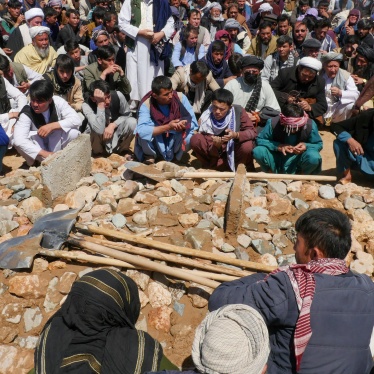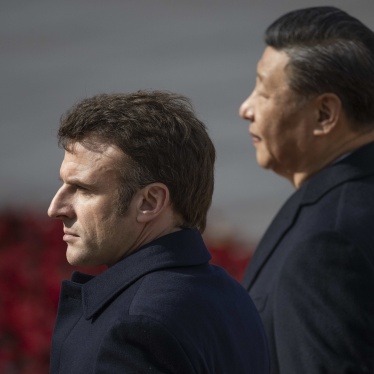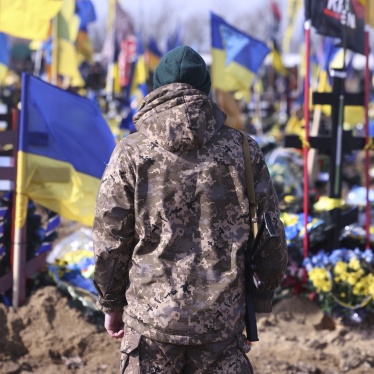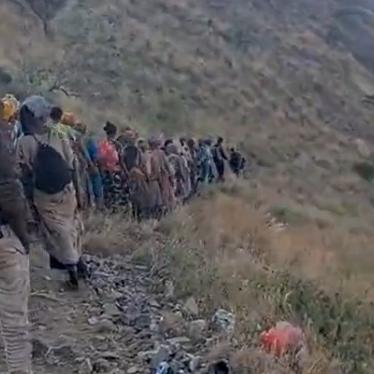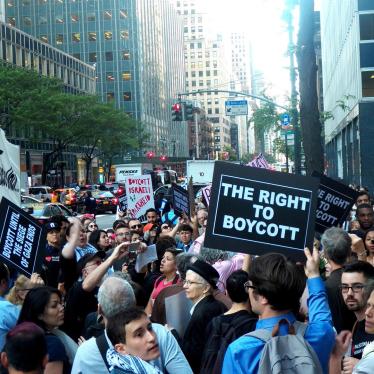A year after martial law was imposed in Nanggroe Aceh Darussalam, there have been a few signs of hope for the restive province. Last week President Megawati Soekarnoputri announced that the province's status will be downgraded to a civil emergency. Afterwards, the Free Aceh Movement (GAM) released 22 hostages in a deal brokered by the International Committee of the Red Cross.
These are two solid steps forward. But both the Indonesian government and GAM must now make sure that there are not too many steps back. In order to move out of the cycle of violence in Aceh, both sides must demonstrate their commitment to respect human rights and the rule of law in the province. This is as a necessary step toward achieving a sustainable peace for the beleaguered population of the province. Here are a few markers on the road ahead:
Clarify the role of the military:
Jakarta's approach of relying on military means to try to end the conflict has resulted in serious rights violations, without necessarily bringing the province closer to a sustainable peace. President Megawati should publicly clarify and affirm that Aceh will be subject to civilian rule in practice and not just in name. It is now time for the government to demonstrate the sincerity of its public relations campaign.
When the war began again, the Indonesian Military (TNI) claimed that its 40,000 troops were facing some 5,100 GAM fighters. A year later, according to military statistics released this month, the TNI claims it has killed almost 2,000 GAM members, arrested another 2,100, and taken the surrender of 1,276. Some 290 have been wounded.
Human Rights Watch's research, based in large part on detailed interviews with Acehnese who had fled the province, suggests that the TNI often did not distinguish between civilians and GAM combatants. Many refugees reported witnessing soldiers summarily executing civilians. Thus many of the deaths cited by the military as GAM fighters are, tragically, likely to be unarmed civilians.
Although the military operations and the 40,000 or so military and police troops engaged in fighting there for the past year will remain, transparent and accountable civilian leadership in the province will go a long way to demonstrate the government's commitment to all aspects of its integrated operations, including good governance.
Provide access to independent monitors:
For much of the past year, the government has placed a shroud of secrecy around Aceh. This must end. President Megawati should immediately revoke Presidential Decree No. 43/2003, which places unnecessary restrictions on access to Aceh for the United Nations and international and Indonesian aid agencies, nongovernmental organizations and journalists. If conditions in most of the province are indeed as safe as the TNI claims, then there should be no objection to independent monitors operating freely in Aceh. If the conditions of the Acehnese have improved, let these monitors confirm it. If Aceh still has problems, let objective viewers describe them.
Immediate and unfettered access for independent monitors is even more important as Indonesians head to the polls for the first direct presidential election on July 5.
During the previous round of balloting for legislative elections in April, European Union election observers were so severely restricted in their access to the province that they could not draw any conclusions as to the validity of the election in Aceh. An election that is viewed as illegitimate in Aceh would only serve as a source of continuing tension in the province.
GAM, too, needs to demonstrate that it will respect the safety of aid workers, monitors and journalists. GAM, as well as the TNI, has subjected members of the domestic and foreign press corps in Aceh to intimidation, attacks and restrictions since the start of martial law. The release of hostages under the auspices of the Red Cross should have proven to GAM -- as well as the Indonesian government -- that nongovernmental organizations can play an important role in ameliorating some of the misery of this conflict.
Provide accountability for abuses:
Despite extensive restrictions on monitors, the trickle of information leaking out of the province paints a bleak picture. While conditions in Aceh's main towns seem to have improved, there are concerns that Acehnese living in outlying districts still face a grim life.
This month the National Commission on Human Rights (Komnas HAM) reported still more abuses by both GAM and the TNI. It cited incidents of arbitrary arrests, forced disappearances, rape and extrajudicial killings -- precisely the types of abuses chronicled by Human Rights Watch in its December 2003 report, "Aceh Under Martial Law: Inside the Secret War."
While it is commendable that the military has publicly acknowledged that troops in Aceh are guilty of hundreds of violations, there has been relatively little accountability for these abuses. Some soldiers have faced military tribunals, and have been sentenced for crimes such as rape, the unauthorized firing of weapons, theft and extortion.
But the sentences have been low and there has been no serious judicial accountability for abuses such as the widely alleged torture and killing of civilians in Aceh.
President Megawati should make a public commitment to fully investigate the allegations of violations in Aceh of Indonesian law as well as international human rights and humanitarian law since martial law began. All security forces implicated in such violations should be prosecuted and disciplined appropriately.
President Megawati would do well to remember that continuing these positive steps forward for Aceh would go a long way to helping security and stability not just for the province, but for the whole of Indonesia. A commitment to peace and justice for Aceh would be one election promise worth keeping.
Saman Zia-Zarifi is Deputy Director, Asia Division, Human Rights Watch.
